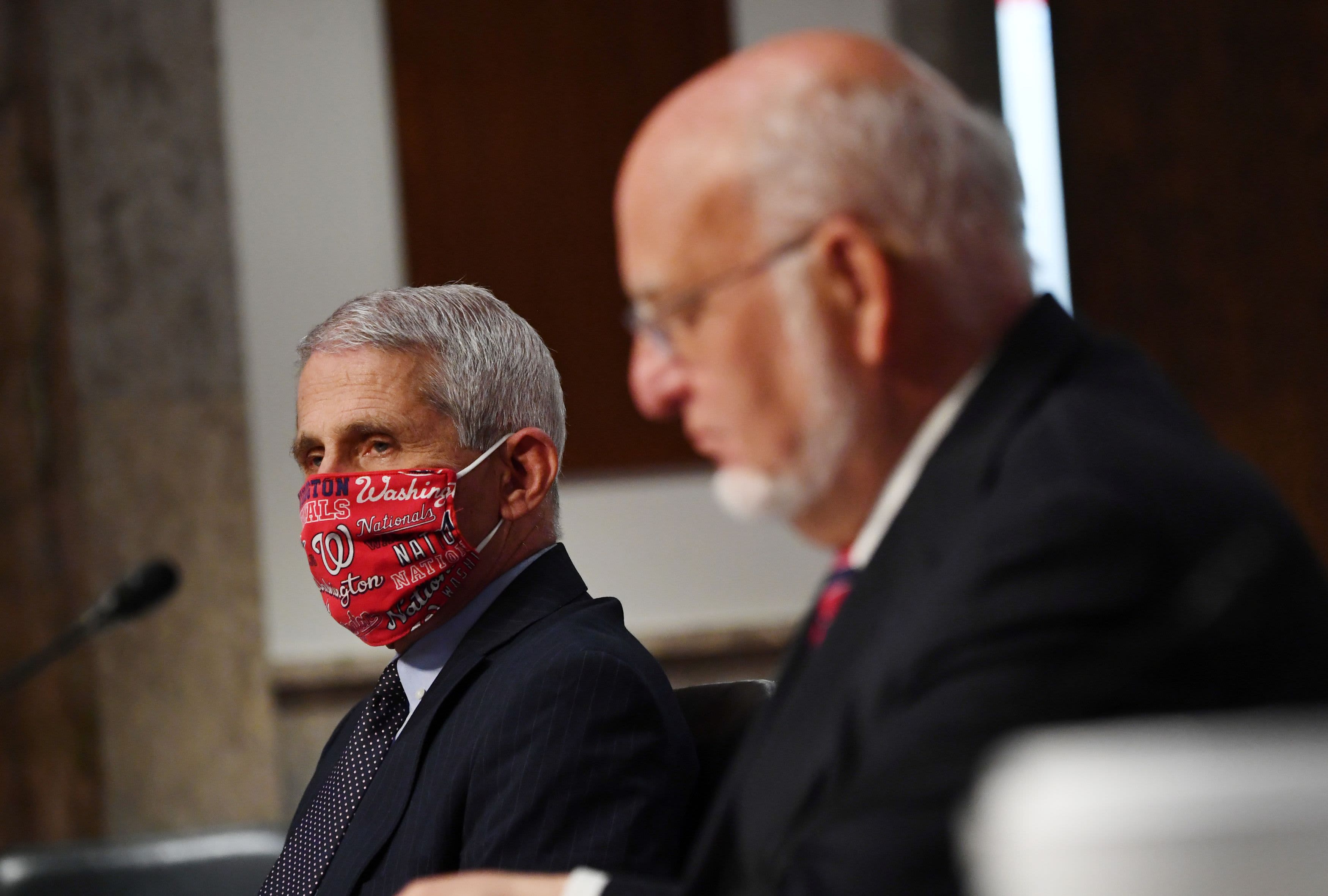Top federal health officials told lawmakers Tuesday the U.S. needs a more unified national response and funding for public health funding if the country faces another pandemic.
The U.S. is now reporting nearly 40,000 new coronavirus cases every day — almost double from about 22,800 in mid-May — driven largely by outbreaks in a number of states across the South and West.
Appearing before the Senate Health, Education, Labor and Pensions Committee, Dr. Anthony Fauci, director of the National Institute of Allergy and Infectious Diseases, told lawmakers that the U.S. is “not in total control” of the coronavirus pandemic.
If the country were to experience another pandemic in the future, officials would need to do a better job of responding to the outbreak “in a coordinated way” rather than allowing disparate responses from different regions of the country, Fauci said during a hearing.
“We’ve got to do it in a very coordinated way because we are all in this together,” he said.
Moving forward, Fauci added that he would like to “cement in our minds” that outbreaks can happen and, when they do, officials must deal with them in a “very aggressive, proactive way.”
“We cannot forget that what was thought to be unimaginable turned out to be the reality that we’re facing right now,” Fauci said.
His comments came after Chairman Lamar Alexander, R-Tenn., asked health officials how the nation could better prepare for a future pandemic.
The U.S. has reported the most coronavirus infections of any country across the globe, constituting roughly a quarter of the world’s more than 10.4 million cases, according to data from Johns Hopkins University. Lamar noted that he recently published his own suggestions in a white paper, “Preparing for the Next Pandemic,” earlier this month.
Dr. Robert Redfield, director of the Centers for Disease Control and Prevention, said now is the time to make greater investments in the nation’s public health infrastructure on the local, territorial, tribal, state and federal level.
“When it comes to public health threats, our nation needs to be over-prepared not under-prepared,” Redfield said.
He said the U.S. has underinvested in the “core capabilities of public health” for decades, including data monitoring, its workforce and emergency response capabilities.
Redfield previously told lawmakers in March that a lack of funding has hampered the federal government’s response to the coronavirus outbreak, specifically when it came to early diagnostic testing.
“We’ve really been hit with this simple virus, and I think at the end of the day it’s going to cost our nation trillions of dollars, and I think we have a moment in time where I think people are attuned,” Redfield said during the hearing on Tuesday.
Adm. Brett Giroir, assistant secretary of Health and Human Services, said officials didn’t have accurate data at the beginning of the outbreak on how many ventilators were in use, how many tests were available or how many cases were being reported across the U.S.
“I mean the complete soup to nuts infrastructure that we need to make decisions,” he said. “You need those data to make decisions and to allocate resources. And now that we’ve built this on the fly, but we absolutely have to invest in that.”
Giroir warned lawmakers that other preventative procedures, such as cancer screenings and immunizations, fell drastically during the nation’s Covid-19 response, posing a threat the health system. He added that the U.S. has to continue to focus on health disparities that have led to higher mortality rates for Black people and Hispanics.
Long-standing health and social inequities have placed racial and ethnic minority groups at greater risk of serious illness form the coronavirus, as seen in higher rates of hospitalizations and deaths, according the the CDC.
“If everyone was healthier in this country, if we invested into hypertension, obesity, diabetes, all the things that could bring the general health up, you would not see as many horrible outcomes in any pandemic,” he said.
